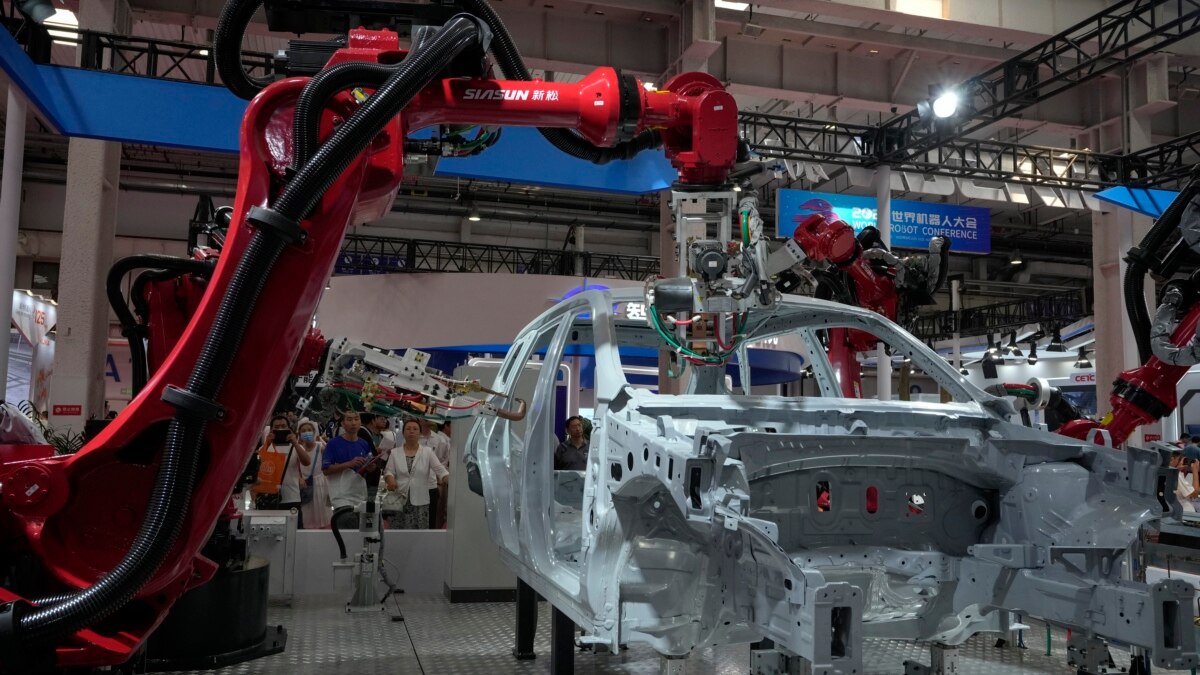China's previous economic model of investing in infrastructure and manufacturing led to a period of rapid growth and global export success.
China's factory activity is expected to contract for a fifth consecutive month in August due to weak demand, posing challenges to the country's economic recovery.
Consumer spending in China rebounded in August, with all categories, including apparel, automotive, food, furniture, appliances, and luxury, experiencing increased sales compared to July, according to a survey by the China Beige Book. Retail sales in July rose by 2.5% year-on-year, raising concerns about China's economic growth, but the August survey showed a surge in spending, particularly in the services sector, which saw continued strength in travel and hospitality. Additionally, corporate borrowing increased as the cost of capital declined, indicating a boost in business activity. However, China's property sector continued to worsen, with house prices barely growing and home sales declining.
China's factory activity contracted for the fifth consecutive month in August, indicating that the slowdown in the country's economy has not yet reached its lowest point.
China's manufacturing activity contracted for a fifth consecutive month in August, putting pressure on officials to provide support to boost economic growth amid weak domestic and international demand.
China's factory activity unexpectedly improved in August, with supply, domestic demand, and employment showing signs of improvement, suggesting that efforts to revive economic growth might be having some effect.
Despite efforts by the U.S. and other countries to reduce reliance on Chinese supply chains, Chinese companies have successfully expanded their presence in key markets such as cutting-edge materials and electric vehicles, making it difficult for countries to ensure their economic security.
China's services activity expanded at its slowest pace in eight months in August, as weak demand and stimulus measures failed to revive consumption, according to a private-sector survey.
China's passenger vehicle sales experienced growth in August, driven by discounts and tax breaks on environmentally friendly and electric cars, despite a weak economy, and Tesla's share of the Chinese electric vehicle market nearly doubled.
China's factory output and retail sales grew at a faster pace in August, but declining investment in the property sector poses a threat to the country's economic recovery.
China's factory and services sectors experienced slower growth in September due to weak external demand, despite an increase in output, with the property slump, falling exports, and high youth unemployment clouding the economic outlook.
China's official manufacturing purchasing managers' index (PMI) indicates expansion for the first time since March, suggesting that the Chinese economy may be regaining momentum, while bumper travel figures during the Golden Week holiday are also seen as a positive sign, despite concerns over the troubled property sector.
India's factory activity expanded at a slower pace in September, but strong demand and business confidence remained high, despite increased inflationary pressures.
Japan's service sector experienced the slowest expansion in September since the beginning of the year, as shown by a private survey, indicating potential challenges for the country's economic recovery heavily reliant on domestic demand.
The Chinese economy is predicted to grow about 5.7 percent in the fourth quarter, surpassing the 5 percent annual growth target, driven by unleashed services consumption potential, accelerated infrastructure investment, and growth in high-tech and private manufacturing investment, according to the BOC Research Institute.
Car sales in China increased 4.7% in September, driven by discounted and new models ahead of holidays, with new energy vehicle sales growing 22.1% and accounting for 36.6% of total car sales.
Despite a prolonged decline in overseas orders, Taiwan's actual exports experienced growth in September due to increased demand for semiconductor chips related to AI, signaling a slow turnaround in the offshore markets for hi-tech hardware.
Japan's factory activity contracted for the fifth consecutive month in October, while the service sector experienced its slowest growth this year, indicating growing uncertainty about the country's economic outlook.
China's industrial profits rose for a second consecutive month in September, indicating a stabilizing economy driven by supportive policy measures and a recovery in industrial and consumption activity.
